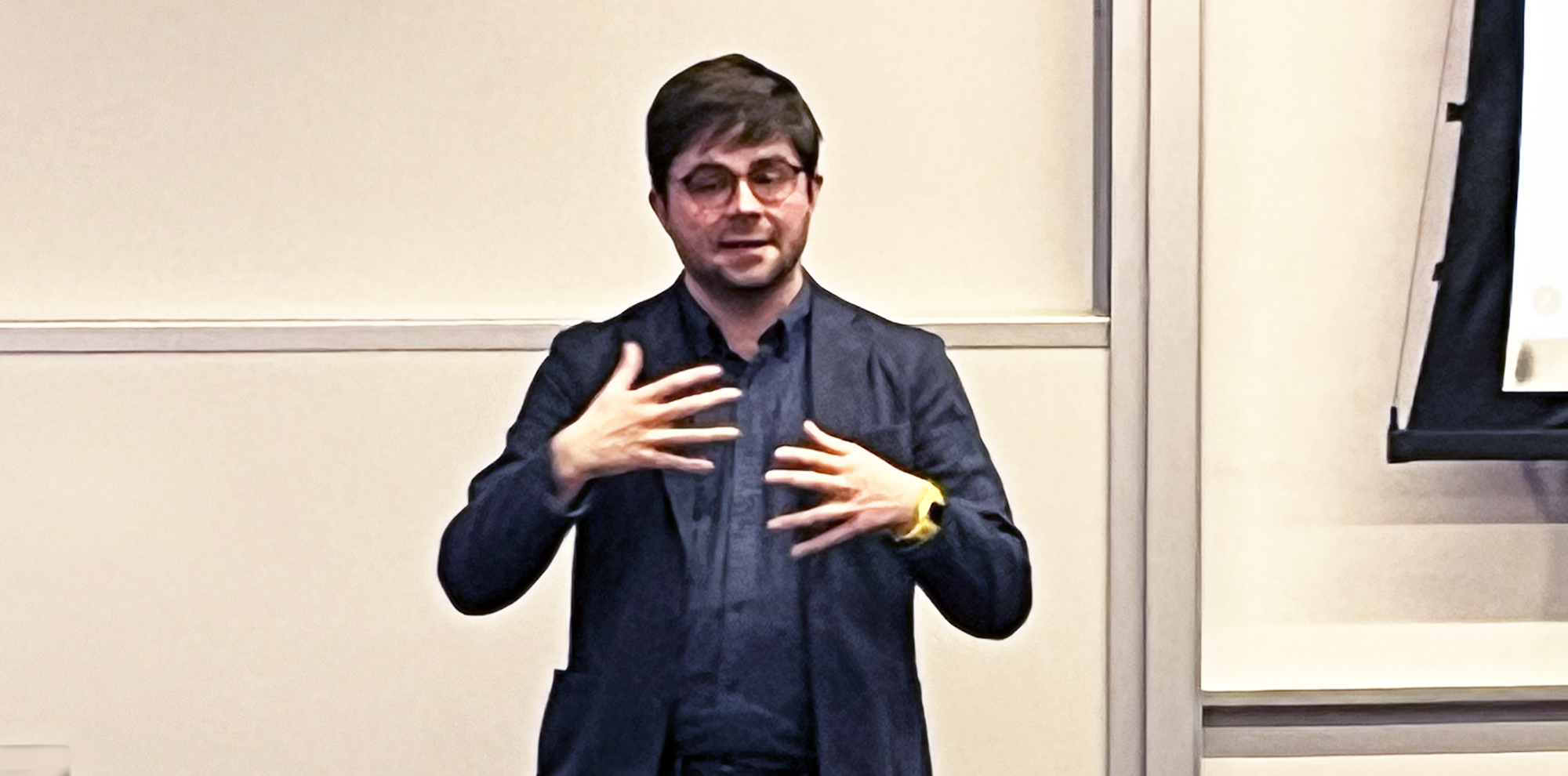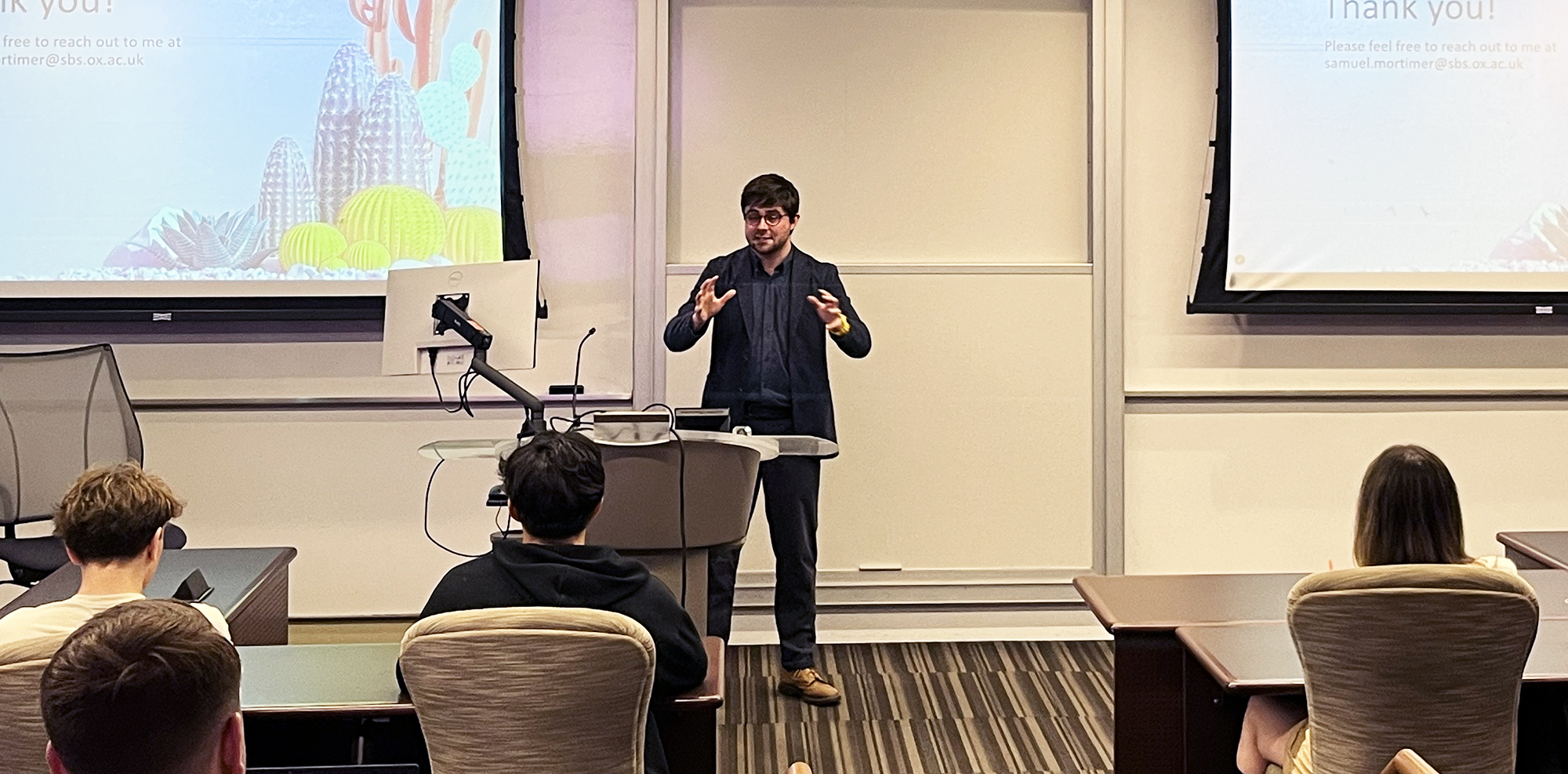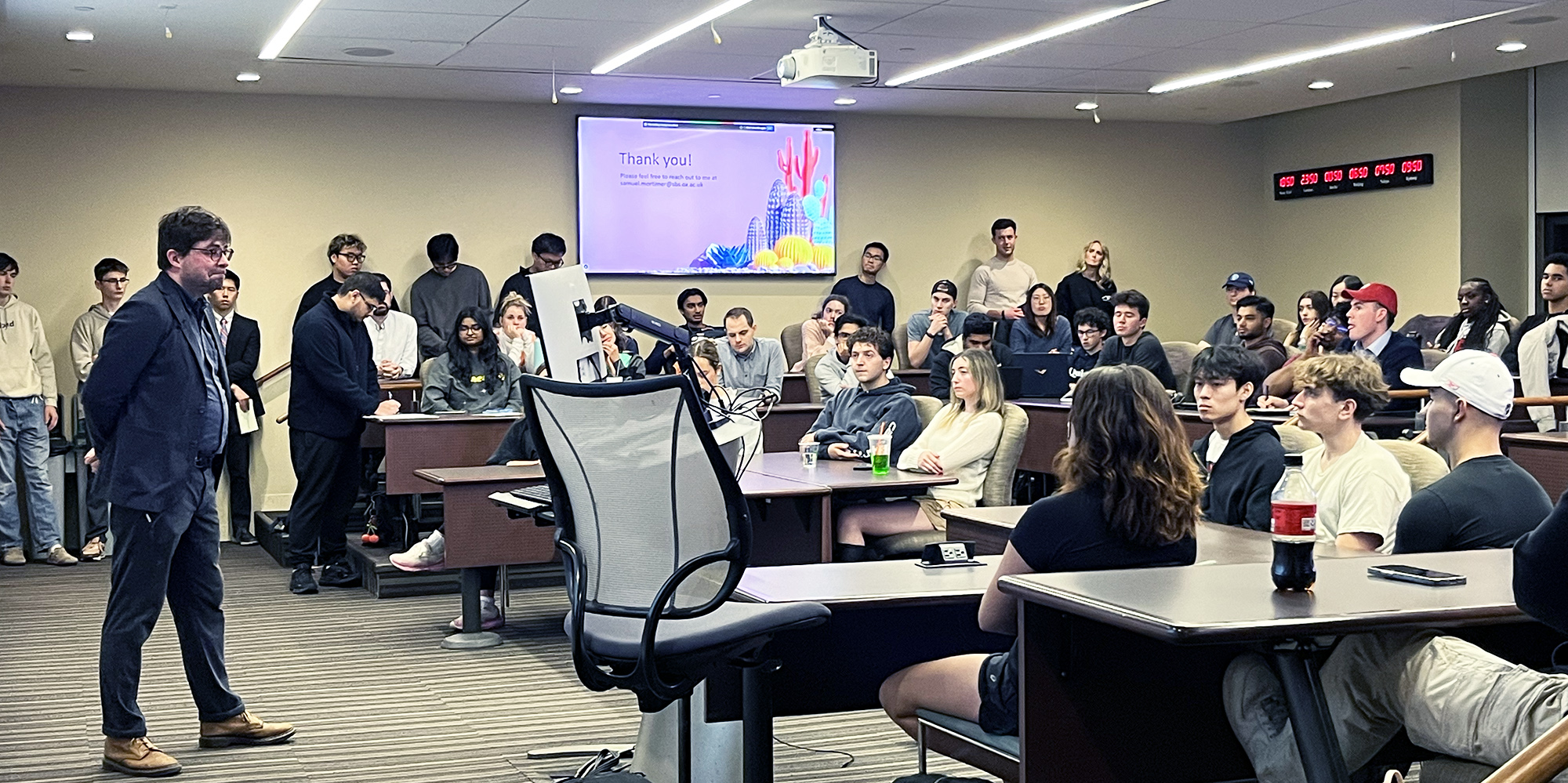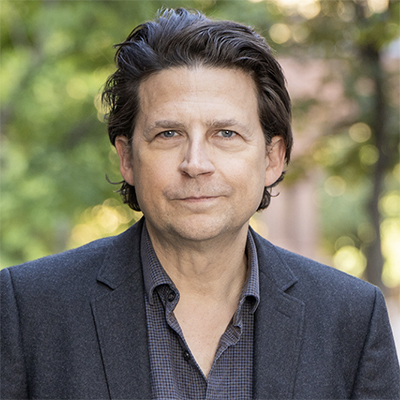Ethics in Business Seminar Series
Fordham University’s Gabelli School of Business is one of the world’s academic leaders in normative business ethics, providing critical insights into the most pressing ethical issues in business, both perennial and emergent. The Ethics in Business Seminar Series convenes thought leaders in the field to initiate critical inquiry and discussion in the New York City area and beyond. In the best Jesuit tradition in business ethics, the Series seeks to understand the normative underpinnings of business practice, the social function and the ethics of markets, the nature of professional roles and their responsibilities, and the purpose of business firms and their executives.
Please join us as we explore these fundamental questions!
Upcoming Seminars
December 3, 2024 • 5:00 – 6:30 p.m.
Fordham Lincoln Center Campus
140 West 62nd Street, Room 324
Is Competition Inherently Sleazy?
-
Joseph Heath presents his market failures approach to business ethics as a happy medium between cynicism and the idealism of traditional moral theories such as Kantian ethics, which Heath believes to be incompatible with important forms of competition. The market failures approach defends some real ethical limits in business, beyond following the law, but it condones certain deviations from the norms of everyday morality in the interest of economic efficiency. On this view, a certain level of sleaziness in business is permissible and inevitable, even if it is regrettable. Robert Hughes argues that Kantian ethics provides a better account of the ethics of competition than the market failures approach does. Kantian ethics is in fact compatible with competition, both on the market and in the workplace. On some key issues, notably including the issue of truthfulness and disclosure, Kantian ethics permits competitive strategies that the market failures approach forbids. Moreover, when Kantian ethics deems the reasoning behind a competitive strategy morally acceptable, it endorses the strategy without any ethical reservations. There is no reason to regard justified business practices as regrettable or sleazy.
Robert Hughes, Ph.D.
Rutgers Business School

Robert Hughes is an associate professor of professional practice at Rutgers Business School—Newark and New Brunswick. His research in moral, legal, and political philosophy addresses ethical issues that arise in business, such as the ethics of lawbreaking, competitive pressures to do wrong, and the possibility of consensual yet wrongful exploitation.
Past Seminars
October 25, 2024
The Messy Ethics of Business Organization
-
Underlying some of the most influential normative theories of business ethics is the assumption that there is an asymmetry between the moral responsibilities of managers and those of subordinates, arising in virtue of the control managers have over organizational decision-making. Empirical research on business organizations casts doubts on this assumption. While organizational decisions are routinely attributed to managers, the decisions themselves are the product of collective action processes over which managers have little control. Managers may be able to influence the outcome of these processes, but so can subordinates. In some cases, subordinates may have more influence than managers. This suggests that the primary domain of business ethics is not managerial decision-making, but instead the various behaviors by which people (managers or otherwise) exert influence on organizations. I end by discussing how a theory of business ethics that focuses on these behaviors would differ from standard theories.
-



Samuel Mortimer, Ph.D.
Intesa Sanpaolo Research Fellow, Saïd Business
School, University of Oxford, U.K.

Samuel Mortimer is the Intesa Sanpaolo Research Fellow at the Saïd Business School, University of Oxford, and a Research Fellow at The Kyoto Institute of Philosophy. He conducts research in both philosophy and management, on topics such as authenticity, meaningfulness, trust, and irreplaceability.
September 17, 2024
Consent in the Digital Age
-
This paper analyzes consent in the digital realm, arguing that this context reveals the limitations of existing theories and expands our understanding of morally transformative consent. By developing a taxonomy of consent's morally transformative features and applying it to the digital realm, the paper aims to correct the failures of digital consent while highlighting the limitations of current philosophical understanding. It argues that for consent to be morally meaningful for individuals, strong communal protections for rights must exist in the background, suggesting the need to integrate insights from political philosophy into traditional consent theory.
Elizabeth Edenberg, Ph.D.
Assistant Professor of Philosophy, Baruch College, CUNY

Elizabeth Edenberg is an assistant professor of philosophy at Baruch College, CUNY, specializing in political philosophy, political epistemology, and ethics of technology. Her research applies philosophical tools to contemporary societal challenges, ranging from justice and political disagreement to technology's role in shaping the future. Edenberg has published in leading journals across philosophy, computer science, and science and technology studies, and co-edited a research volume on Political Epistemology (Oxford University Press, 2021).
April 5, 2024
Virtues and Values in Professional Ethics
-
Reflection about professional values and principles has taken center stage in contemporary discussions on professional ethics. In this paper, I argue that a full-fledged ethics of the profession needs to incorporate virtues as a core element within the theory. First, I provide some reasons in support of giving virtue—alongside values and principles—a central role in the ethics of the professions. Virtues, I will argue, are not reducible to values, which are related in complex ways. Next, I will develop a skill model of professional virtue, with a focus on the creative professions and will examine some of the key character traits that are needed to excel in these professions. Last, I will point out some advantages of the virtue approach to professional ethics. The paper concludes by suggesting some implications of this approach for professional education and institutional design.
Amalia Amaya, Ph.D., LL.M., S.J.D.
British Academy Global Professor, Edinburgh Law School; Research Fellow, Institute for Philosophical Research, National Autonomous University of Mexico

Amalia Amaya is British Academy Global Professor at Edinburgh Law School and Research Fellow at the Institute for Philosophical Research at the National Autonomous University of Mexico. She also has held visiting appointments at the University of Texas at Austin, University College at Oxford University, and Queen Mary University of London. She earned an L.LM. and a Ph.D. from the European University Institute and an L.LM. and a S.J.D. from Harvard Law School. Professor Amaya works primarily in philosophy of law, although she is also interested in some issues in moral and political theory. She is the author of The Tapestry of Reason: An Inquiry into the Nature of Coherence and its Role in Legal Argument (2015). Professor Amaya’s current research project is on law, virtue, and community. On this topic, she has co-edited Law, Virtue and Justice (with Ho Hock Lai, 2012), The Faces of Virtue in Law (with Claudio Michelon, 2020) and Virtue, Emotion and Imagination in Legal Reasoning (with Maksymilian del Mar, 2020). She is now working on a book manuscript that develops a virtue approach to legal reasoning and judicial ethics. In addition, she is engaged in research on three themes: the role of exemplarity in legal and political culture, fraternity as a legal and political ideal, and ambivalence in legal decision-making.
March 7, 2024
Hussain on the Market: Critique or Kvetch?
-
In order to qualify as such, a critique of capitalism should take issue with features that are specific to that economic system, which is to say, features that would not be present after some feasible reorganization of the economy. Otherwise the critique is not really a critique of capitalism, but rather of the human condition. I refer to this as a kvetch. Waheed Hussain's book, Living with the Invisible Hand, is intended as a critique of the market economy. I analyze Hussain's argument in order to determine whether it counts as a critique or a kvetch.
Joseph Heath, Ph.D.
Professor, Department of Philosophy, University of Toronto

Joseph Heath, Ph.D., is a professor in the Department of Philosophy at the University of Toronto. He is the author of several books, both popular and academic, including Economics Without Illusions (HarperBusiness, 2009), Morality, Competition, and the Firm (Oxford, 2014), and most recently, Ethics for Capitalists (Friesen, 2023).
December 5, 2023
From Business-as-Usual to Suddenly-Unacceptable: Lessons for Ethical Business Today from the “Whiteface” Marketing of Black Music by the American Recording Industry, c. 1956-68
-
One of the most striking features of our contemporary social world is how quickly something can go from “business-as-usual” to “unacceptable” to “retrospectively unbelievable.” Current undergrads might find it surprising that it was “normal,” not so long ago, for students and professors to smoke during classes; and, more recently, for liberal arts colleges to demand that applicants for admission or employment identify themselves as either male or female. Were either thing to happen today, it would be considered outrageously inappropriate. This gives rise to two questions for business ethicists:
- How is it that practices, which we will soon come to see as unacceptable, are able to hide in plain sight for so long without many critiques? And,
- Can conscientious individuals and managers get reliably “ahead of the curve”? That is, how can we identify and reform problematic practices that are still widely tolerated… without going “too far” in our reforming zeal and inviting ridicule?
This seminar, led by Wayne Norman. Ph.D., explores the first of these very general questions through the vivid presentation of a very concrete marketing practice that was employed by virtually all record labels in the 1950s and 1960s. We can call this practice the “whitefacing” of Black jazz and R&B/soul artists, and it “hid” very much in plain sight on the covers of hundreds of 12” vinyl LPs by major and minor artists alike for about a dozen years. (We will survey these LP covers throughout the presentation.)
Whitefacing seems eventually to have been recognized as “unacceptable” quite suddenly around 1967-1968; despite there having been no public movement against it. There also seems to be no historical memory of this whitefacing phenomenon, even within the community of scholars of African-American popular culture. So, it now seems “retrospectively unbelievable,” even as you see it with your own eyes. We will consider some “educated speculation” about how this all could have happened, and about what this neglected case study tells us about the challenges today for those who want to be at the vanguard of ethical business within a society still beset with systemic injustices.
Wayne John Norman, Ph.D.
Mike and Ruth Mackowski Distinguished Professor of Ethics in Trinity College of Arts and Sciences

Wayne Norman is the Mike and Ruth Mackowski Professor of Ethics in Trinity College of Arts and Sciences at Duke University. His books include “Citizenship in Diverse Societies” and “Negotiating Nationalism,” and he is currently writing three more: “Business Ethics on the Fly: a Toolkit”; a monograph tentatively titled “The Ethical Adversary: How to be Fair When You’re Playing to Win… in Business, Law, Politics, War, Sports, and Love”; and a coffee-table book, “Whiteface: Systemic Racism and Misogyny in the Marketing of Midcentury Modern American Music.”
October 24, 2023
Plato’s Paradox: Why Ethical People Should Lead But Shouldn’t Want To
-
Professor Joanne Ciulla, Ph.D., professor and director of the Institute for Ethical Leadership, Rutgers Business School, examines why leaders behave unethically. Drawing on Plato, Aristotle, Machiavelli, Weber, and others, she argues that under extreme circumstances, moral transgressions such as lying and doing harm are part of a leader’s job, which can lead to ethical transgressions that are not.
JoAnne B. Ciulla, Ph.D.
Professor and Director of the Institute for Ethical Leadership, Rutgers Business School

Joanne B. Ciulla is a pioneer in the field of leadership ethics. Her research focuses on the ethical challenges of leadership. She has also written extensively on topics in business ethics such as meaningful work. Before joining RBS, she held the Coston Family Chair in Leadership and Ethics at the Jepson School of Leadership Studies (University of Richmond), where she was one of the School’s founders. Jepson was the first degree-granting liberal arts school of its kind in the world. Ciulla has held academic appointments at Harvard Business School, The Wharton School, and LaSalle University. Her visiting positions include the UNESCO chair in Leadership Studies at the United Nations International Leadership Academy (Jordan), the Gourley Professor of Business Ethics, University of Melbourne (Australia) and visiting professorships at the University of Fort Hare (South Africa), Nyenrode Business School (Netherlands), Oxford University (Green College), and the Harvard’s Kennedy School. She has also been a Fulbright specialist.
For her scholarship, Ciulla has received Lifetime Achievement Awards from The Society for Business Ethics, the International Leadership Association, and the Network of Leadership Scholars at the Academy of Management. In addition, she is the recipient of a Lifetime Achievement Award for Service to the field of business ethics from the Society for Business Ethics, a Master Teacher Award from The Wheatley Institution at Brigham Young University, an Outstanding Faculty Award from the Virginia State Council of Higher Education, and a Distinguished Educator Award from the University of Richmond.
Ciulla sits on the editorial boards of The Business Ethics Quarterly, The Leadership Quarterly, and Leadership and edits the New Horizons in Leadership Studies Series (Edward Elgar), one of the largest collections of books from the humanities and the social sciences on leadership. She has served as president of The Society for Business Ethics and The International Society for Business, Ethics, and Economics. In addition, Ciulla has also worked with the Aspen Institute, The Brookings Institution, and the World Economic Forum. She has been an expert witness, consulted and given lectures and seminars to business, government, and non-profit organizations worldwide.
September 13, 2023
Is Public Ignorance a Problem? An Epistemic Defense of Real-Existing Democracies
-
Does good governance depend on citizens being knowledgeable of relevant facts and best policy ideas? A questionable model of preference aggregation suggests that this type of knowledge matters, and inspires provocative proposals for disenfranchising the most ‘ignorant’ voters. We argue democracies do not require people to be know about facts and policies to perform well. Instead, good outcomes depend on whether decisionmakers are able to track social feedback from citizens regarding their diverse life experiences, views and values and, facing conditions of radical uncertainty, come to understand public grievances, policy implications and trade-offs. Tracking this feedback requires a synergy of isegoria - the equal right of citizens to participate in political life - and parrhesia – the opportunity to say almost anything openly. Democracy’s competitive ecology both enables and compels political actors to explore this feedback in ways that mitigate the problems of elite capture, opportunism and radical dissonance, ultimately producing better governance.
Nick Cowen, Ph.D.
Associate Professor, School of Social and Political Sciences, University of Lincoln, United Kingdom

Nick Cowen is an associate professor in the School of Social and Political Sciences at the University of Lincoln where he teaches Key Social Science Concepts, Human Rights, Social Issues and Social Justice, Images of Crime and Applying Research. His research explores the contributions of private enterprise and civil society towards crime prevention, social order, public health, and the environment. Cowen holds a Ph.D. from King's College London and an M.Phil. in Political Theory from the University of Oxford. He was a Fellow at the NYU School of Law from 2016 – 2019 and has published research in the American Journal of Political Science, The British Journal of Criminology, and Polity, among other publications.
Aris Trantidis, Ph.D.
Senior Lecturer in International Relations and Politics

Aris Trantidis is an expert on democratic politics, with publications exploring democracy’s performance and resilience against authoritarianism, economic crisis, corruption, and discrimination based on gender and minority status. He is a fellow of the Higher Education Academy. Trantidis was previously a Max Weber fellow at the European University Institute (EUI), and a visiting lecturer and teaching fellow at the Department of Political Economy at King’s College London. He is the author of the book “Clientelism and Economic Policy: Greece and the Crisis” (Routledge, 2016). His research has been published in several journals, such as the Journal of European Public Policy, the British Journal of Politics and International Relations, among others. He is the associate editor of the journal Humanities and Social Sciences Communications (Sage). Trantidis has multidisciplinary background with studies in politics, law, and political economy. He holds degrees from King’s College London, the London School of Economics and Political Science (LSE), and the Universities of Surrey, Thessaloniki and Athens.
